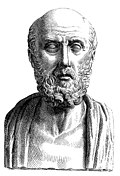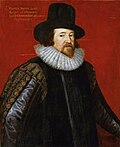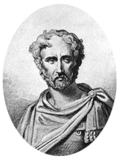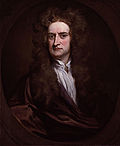Portal:History of science
The History of Science Portal
The history of science covers the development of science from ancient times to the present. It encompasses all three major branches of science: natural, social, and formal. Protoscience, early sciences, and natural philosophies such as alchemy and astrology that existed during the Bronze Age, Iron Age, classical antiquity and the Middle Ages, declined during the early modern period after the establishment of formal disciplines of science in the Age of Enlightenment.
The earliest roots of scientific thinking and practice can be traced to Ancient Egypt and Mesopotamia during the 3rd and 2nd millennia BCE. These civilizations' contributions to mathematics, astronomy, and medicine influenced later Greek natural philosophy of classical antiquity, wherein formal attempts were made to provide explanations of events in the physical world based on natural causes. After the fall of the Western Roman Empire, knowledge of Greek conceptions of the world deteriorated in Latin-speaking Western Europe during the early centuries (400 to 1000 CE) of the Middle Ages, but continued to thrive in the Greek-speaking Byzantine Empire. Aided by translations of Greek texts, the Hellenistic worldview was preserved and absorbed into the Arabic-speaking Muslim world during the Islamic Golden Age. The recovery and assimilation of Greek works and Islamic inquiries into Western Europe from the 10th to 13th century revived the learning of natural philosophy in the West. Traditions of early science were also developed in ancient India and separately in ancient China, the Chinese model having influenced Vietnam, Korea and Japan before Western exploration. Among the Pre-Columbian peoples of Mesoamerica, the Zapotec civilization established their first known traditions of astronomy and mathematics for producing calendars, followed by other civilizations such as the Maya.
Natural philosophy was transformed by the Scientific Revolution that transpired during the 16th and 17th centuries in Europe, as new ideas and discoveries departed from previous Greek conceptions and traditions. The New Science that emerged was more mechanistic in its worldview, more integrated with mathematics, and more reliable and open as its knowledge was based on a newly defined scientific method. More "revolutions" in subsequent centuries soon followed. The chemical revolution of the 18th century, for instance, introduced new quantitative methods and measurements for chemistry. In the 19th century, new perspectives regarding the conservation of energy, age of Earth, and evolution came into focus. And in the 20th century, new discoveries in genetics and physics laid the foundations for new sub disciplines such as molecular biology and particle physics. Moreover, industrial and military concerns as well as the increasing complexity of new research endeavors ushered in the era of "big science," particularly after World War II. (Full article...)
Selected article -

The presence of women in science spans the earliest times of the history of science wherein they have made substantial contributions. Historians with an interest in gender and science have researched the scientific endeavors and accomplishments of women, the barriers they have faced, and the strategies implemented to have their work peer-reviewed and accepted in major scientific journals and other publications. The historical, critical, and sociological study of these issues has become an academic discipline in its own right.
The involvement of women in medicine occurred in several early Western civilizations, and the study of natural philosophy in ancient Greece was open to women. Women contributed to the proto-science of alchemy in the first or second centuries CE During the Middle Ages, religious convents were an important place of education for women, and some of these communities provided opportunities for women to contribute to scholarly research. The 11th century saw the emergence of the first universities; women were, for the most part, excluded from university education. Outside academia, botany was the science that benefitted most from the contributions of women in early modern times. The attitude toward educating women in medical fields appears to have been more liberal in Italy than elsewhere. The first known woman to earn a university chair in a scientific field of studies was eighteenth-century Italian scientist Laura Bassi. (Full article...)
Selected image

Astronaut Buzz Aldrin, Apollo Lunar Module pilot, walks on the surface of the Moon near the leg of the Lunar Module Eagle during the Apollo 11 extravehicular activity (EVA). Astronaut Neil A. Armstrong, commander, took this photograph with a 70mm lunar surface camera. While astronauts Armstrong and Aldrin descended in the Eagle to explore the Sea of Tranquility region of the Moon, astronaut Michael Collins, command module pilot, remained with the Command and Service Module Columbia in lunar orbit.
Did you know
...that the travel narrative The Malay Archipelago, by biologist Alfred Russel Wallace, was used by the novelist Joseph Conrad as a source for his novel Lord Jim?
...that the seventeenth century philosophers René Descartes, Baruch Spinoza, and Gottfried Leibniz, along with their Empiricist contemporary Thomas Hobbes all formulated definitions of conatus, an innate inclination of a thing to continue to exist and enhance itself?
...that according to the controversial Hockney-Falco thesis, the rise of realism in Renaissance art, such as Jan Van Eyck's Arnolfini Portrait (pictured), was largely due to the use of curved mirrors and other optical aids?
Selected Biography -
Lorna Margaret Arnold OBE (née Rainbow; 7 December 1915 – 25 March 2014) was a British historian who wrote several books connected with the British nuclear weapons programmes.
A graduate of Bedford College, London, she trained as a teacher at the Cambridge Training College for Women, but left teaching in 1940. During the Second World War, she served with the Army Council secretariat. In 1944, she transferred to the Foreign Office to head a section of the secretariat of the European Advisory Commission. In June 1945, she moved to Berlin as part of the Allied Control Council, working in the Economic Directorate alongside counterparts from France, America and Russia to co-ordinate administering the districts and supplying food to the population. She was posted to Washington, D.C., in November 1946 as part of the British negotiating team that agreed to merge the U.S. and British zones of Allied-occupied Germany into Bizonia, and remained at the Pentagon until 1949. (Full article...)
Selected anniversaries
- 1593 - Death of Michele Mercati, Italian physician and natural historian (b. 1541)
- 1671 - Death of Giovanni Battista Riccioli, Italian astronomer (b. 1598)
- 1678 - Italian mathematician Elena Cornaro Piscopia becomes the first woman awarded a doctorate of philosophy.
- 1814 - Birth of Gabriel Auguste Daubrée, French geologist (d. 1896)
- 1864 - Birth of Walther Nernst, German chemist and Nobel laureate (d. 1941)
- 1866 - Death of Alexander von Nordmann, Finnish zoologist (b. 1803)
- 1868 - Death of Carlo Matteucci, Italian physicist (b. 1811)
- 1894 - Birth of Hermann Oberth, German physicist (d. 1989)
- 1907 - Birth of J. Hans D. Jensen, German physicist and Nobel laureate (d. 1973)
- 1908 - Birth of Willard Van Orman Quine, American philosopher (d. 2000)
- 1911 - Birth of William Howard Stein, American chemist and Nobel laureate (d. 1980)
- 1928 - Birth of Alexei Alexeyevich Abrikosov, Russian physicist, Nobel laureate
- 1935 - Birth of Charles Sheffield, English-American science fiction author and physicist (d. 2002)
- 1974 - Death of Cornelius Lanczos, Hungarian mathematician (b. 1893)
- 1995 - Death of Ernest Walton, Irish physicist and Nobel laureate (b. 1903)
- 1997 - Death of Jacques-Yves Cousteau, French explorer (b. 1910)
Related portals
Topics
General images
Subcategories
Things you can do
Help out by participating in the History of Science Wikiproject (which also coordinates the histories of medicine, technology and philosophy of science) or join the discussion.
Associated Wikimedia
The following Wikimedia Foundation sister projects provide more on this subject:
-
Commons
Free media repository -
Wikibooks
Free textbooks and manuals -
Wikidata
Free knowledge base -
Wikinews
Free-content news -
Wikiquote
Collection of quotations -
Wikisource
Free-content library -
Wikiversity
Free learning tools -
Wiktionary
Dictionary and thesaurus








































































